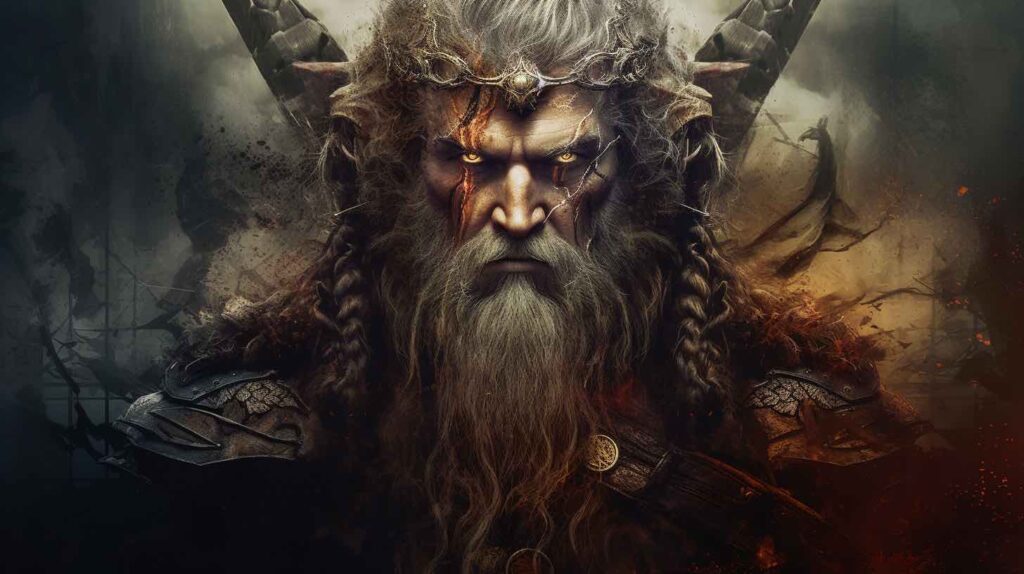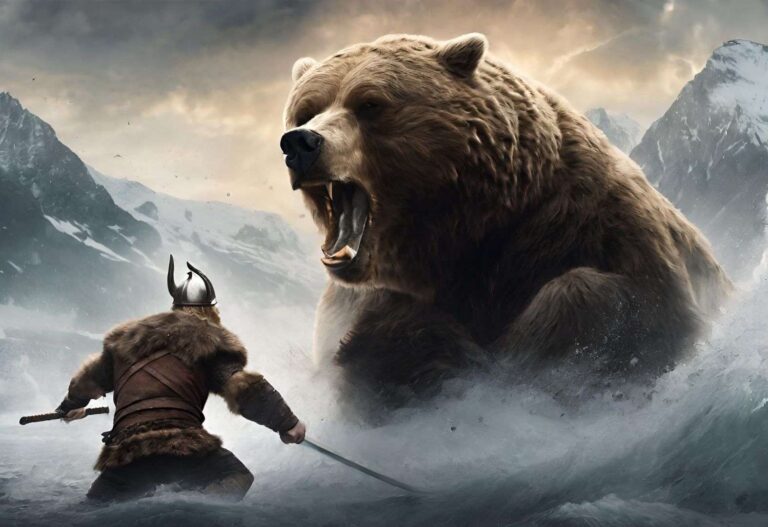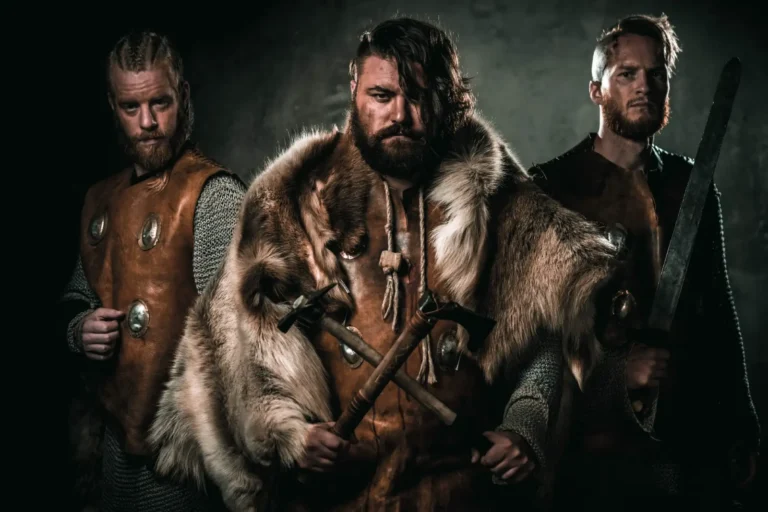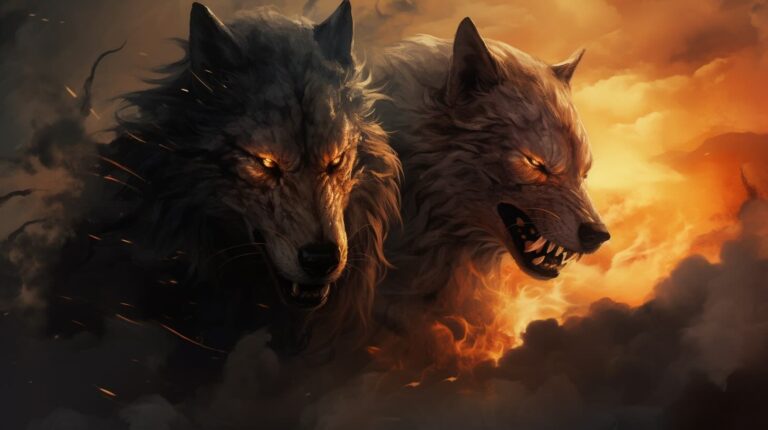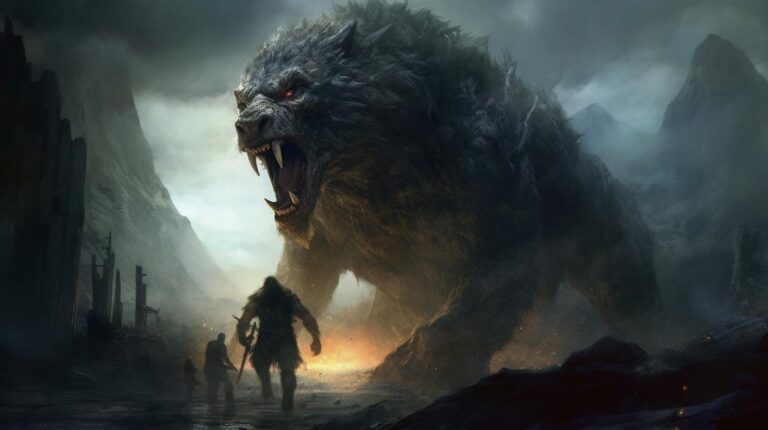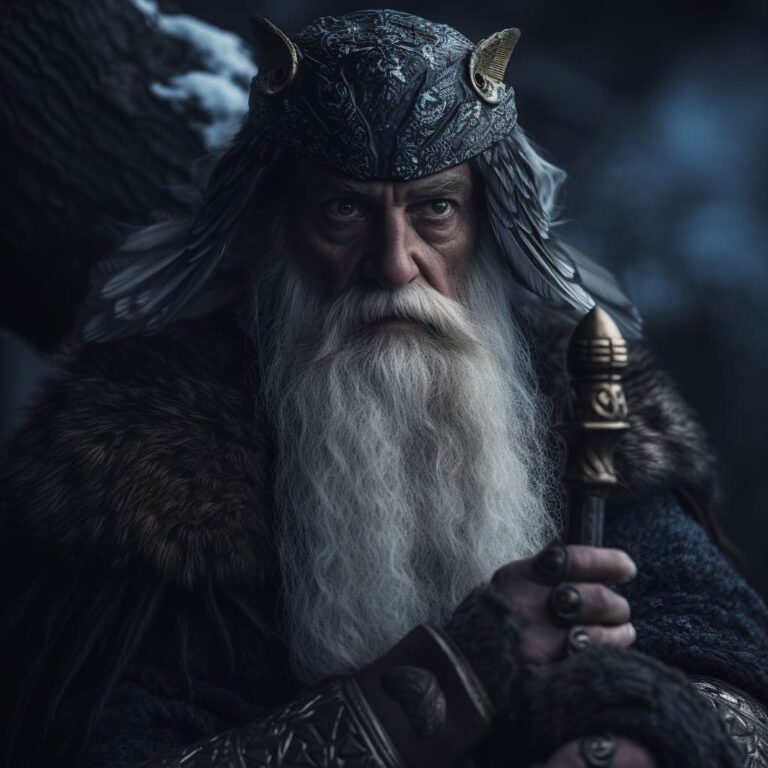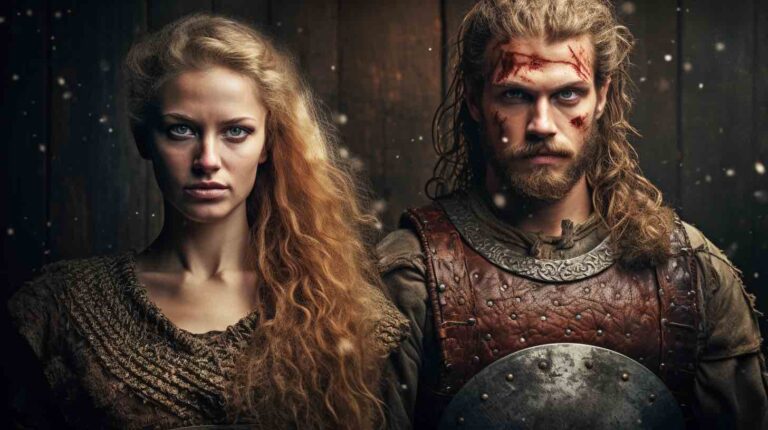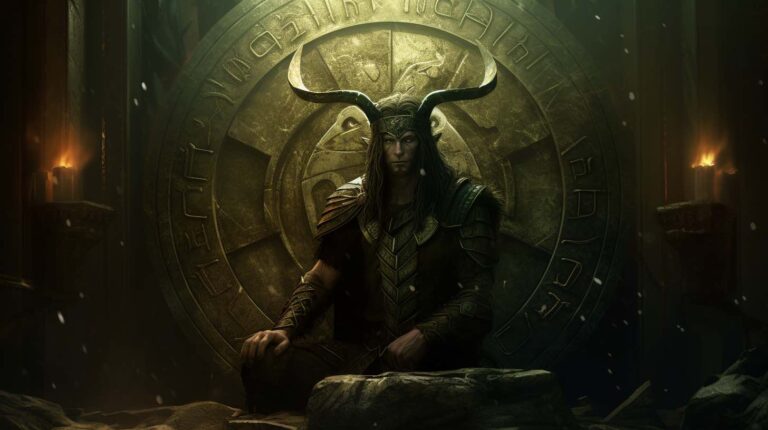In the Viking pantheon we find numerous powerful and intriguing gods that were worshipped in the past. They were foremost driving forces in the hearts of the Norsemen. These gods represented a variety of facets of life, including love, thunder, and knowledge. In this article, we will investigate the five most powerful Viking gods, and delve into the fascinating world of Norse mythology.
Odin, the All-Father
The chief god of the Norse pantheon and lord of Asgard is Odin, also called Woden or Wotan. Odin is representative of knowledge, battle, magic, poetry and death as the Alfather. He is often depicted as an elderly, bearded man dressed in a cloak and hat with a wide brim. According to legend, Odin sacrificed one of his eyes at the Well of Mimir to further his quest for knowledge and deepen his understanding of the cosmos.
The god of battle is one of Odin’s most important duties. He is the leader of the Valkyries, a group of female warriors who select the bravest slain soldiers from the battlefield and carry them to Valhalla. Awaiting Odin’s call to fight alongside him during the Apocalypse, these warriors prepare for the decisive battle of Ragnarok. Odin is a complex and intriguing god who embodies both the knowledge of the sage and the fury of the warrior. Want to learn more about Odin? Read about his symbol the Valknut, his wolves and his ravens in this article.
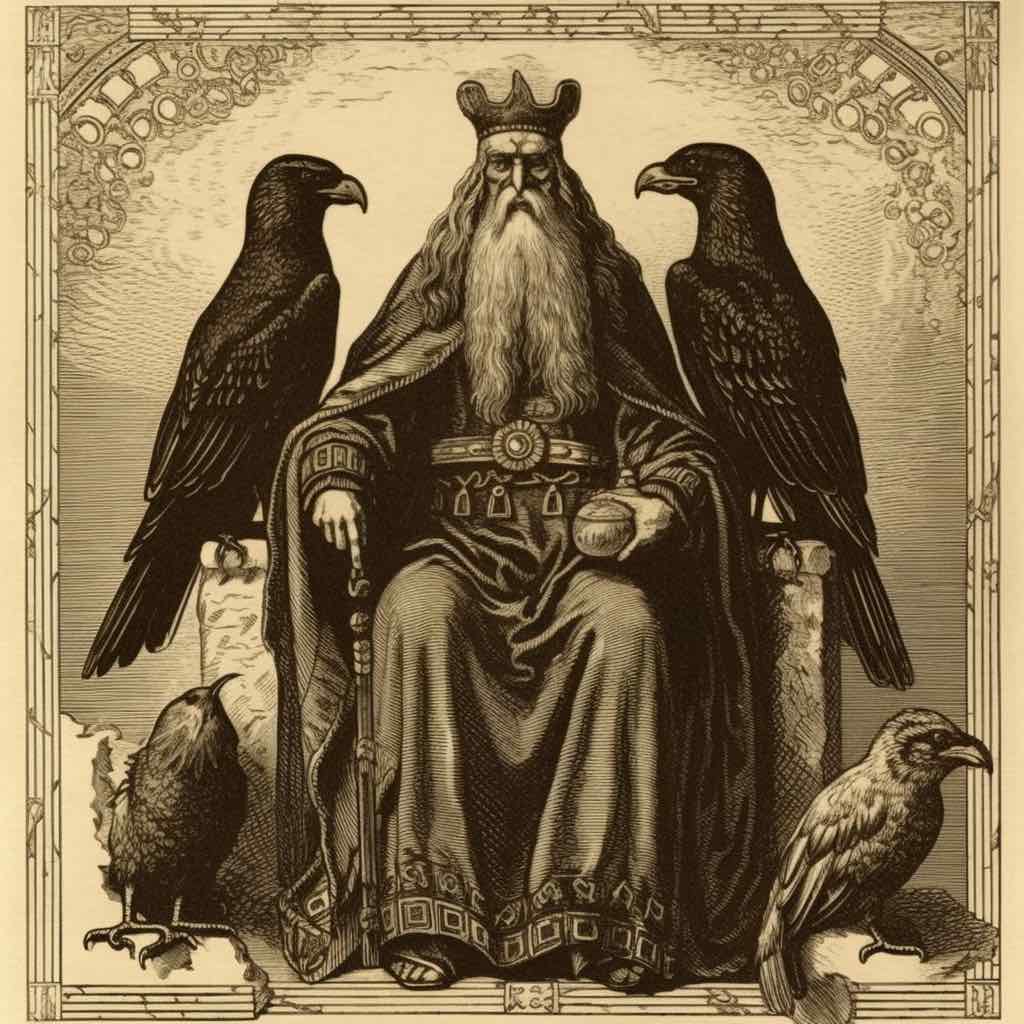
Thor, the God of Thunder
Thor is known as the god of thunder, storms, and power. He is the son of Odin and the giantess Jör. He is renowned for his fiery eyes, red beard, and Mjölnir, his powerful hammer. Thor uses Mjölnir, a weapon of incomparable might, to defend both gods and mankind from dangers like giants and other dangerous creatures.
Thunderstorms were thought to bring nourishing rain to the crops, which is why Thor is also connected to fertility and agriculture. In times of need, the Norse people frequently invoke this adored and renowned deity to provide strength and protection. Thor is a crucial defender of Asgard and Midgard, the world of humans, thanks to his bravery and perseverance in the face of peril.
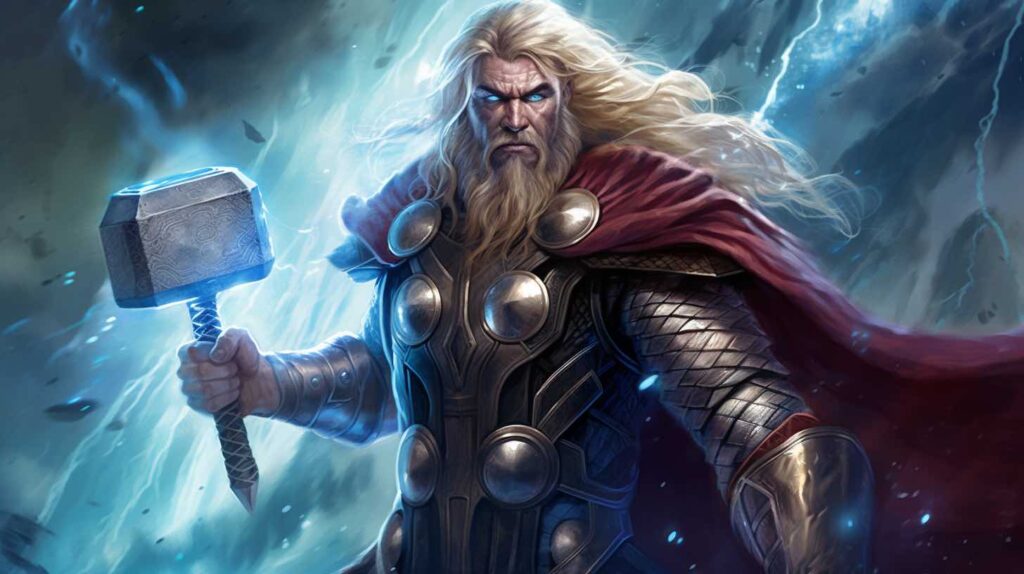
Freyja, the Goddess of Love and War
The multifaceted and mighty goddess Freyja, also known as the “Lady” or “Mistress,” is linked to love, fertility, beauty, war, and magic. She is Freyr’s twin sister, the god of fertility and prosperity. Freyja is seductively beautiful, and she emanates a seductive aura that seduces both gods and humans.
Freyja, the goddess of love and fertility, is in charge of directing the departed warriors’ spirits to her realm, Sessrmnir, in the afterlife. While the other half join Odin in Valhalla, she selects the other half of the fallen soldiers to feast and celebrate with her. In Norse mythology, where beauty and passion are entwined with the brutal realities of conflict and sacrifice, Freyja’s dual nature as a goddess of both love and war represents the interdependence of life and death. You can read more about powerful Viking goddesses here.
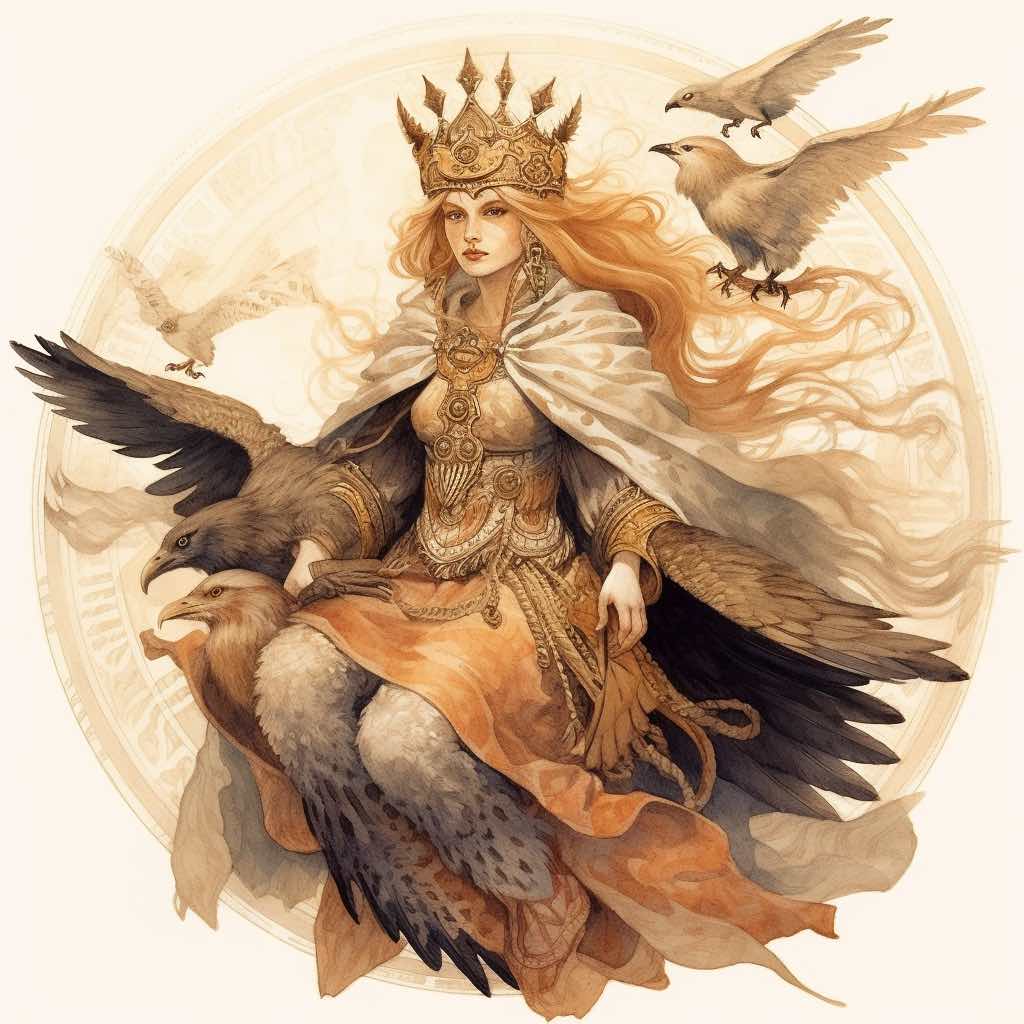
Tyr, the God of War and Justice
Tyr, often spelt Tr or Tiwaz, is the deity of battle, justice, and the law. Since he gave up his right hand to restrain the terrifying wolf Fenrir, he is frequently portrayed as a god with only one hand. Tyr’s readiness to make such a sacrifice demonstrates his sense of responsibility, bravery, and unwavering dedication to upholding justice and order among the gods and mankind.
Tyr is revered as a god of war because of his valour and strength in conflict. He is connected to legal issues and oaths, and it is thought that when oaths are taken in Tyr’s name, they are unbreakable. Tyr’s name was invoked by warriors during combat to enlist Tyr’s assistance and gain his protection. Read more about Tyr in this article.
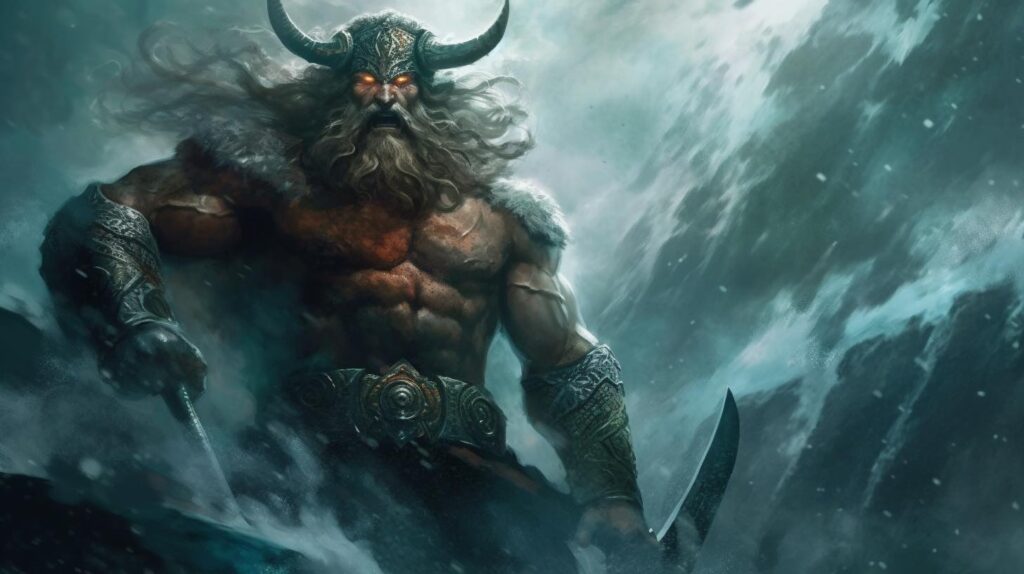
Loki, the Trickster God
One of the most complex and diverse characters in Norse mythology is Loki, often known as the “Trickster” or “Shape-shifter.” His character embodies the opposites of chaos and order, mischief and cunning.
Loki is renowned for his ability to change into other creatures and entities, such as a salmon, a fly, and a mare. He is frequently described as crafty and naughty, using his wit to rile up the gods. Loki occasionally helps the gods with his intelligence and resourcefulness despite his shenanigans.
However, Loki’s cunning nature ultimately has far-reaching effects. His participation in planning the murder of Baldr, the adored son of Odin and Frigg, earns him a perpetual punishment. In this punishment, venomous serpents drip venom onto him while he is restrained beneath one of their bodies.
The nuanced harmony between chaos and order in Norse mythology is best illustrated by Loki’s nuanced persona. While he challenges the stability of the gods and their realm, he also plays an essential role in shaping the destiny of the cosmos, leading up to the cataclysmic event of Ragnarok. Want to learn more about Loki? Read about Loki’s symbolism, sons and meaning.
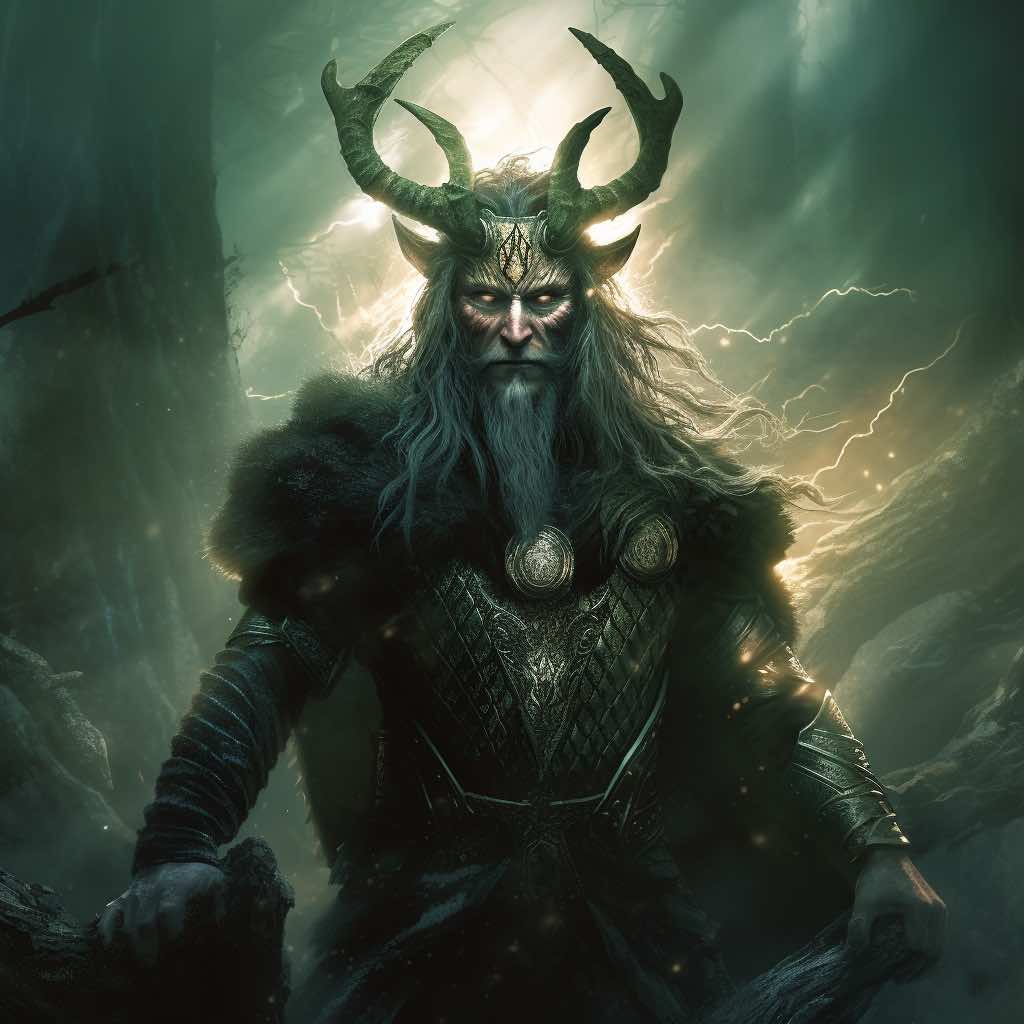
Conclusion
Each of these five powerful Viking Gods is a strong, complex being who contributes to the rich narratives of Norse mythology. These gods represent a wide variety of qualities and attributes that reflect the complexity of the Vikings’ worldview. Ranging from the wisdom and martial prowess of Odin to the thundering strength of Thor, the dual nature of Freyja, the unwavering justice of Tyr and the unfathomable cunning of Loki.
Their stories continue to fascinate and motivate us as they give us a glimpse into the values and beliefs of the Norse people. We learn to better appreciate the remarkable and enduring heritage of Norse mythology, which has had a profound influence on human culture and imagination, as we delve into the universe of these powerful deities.
